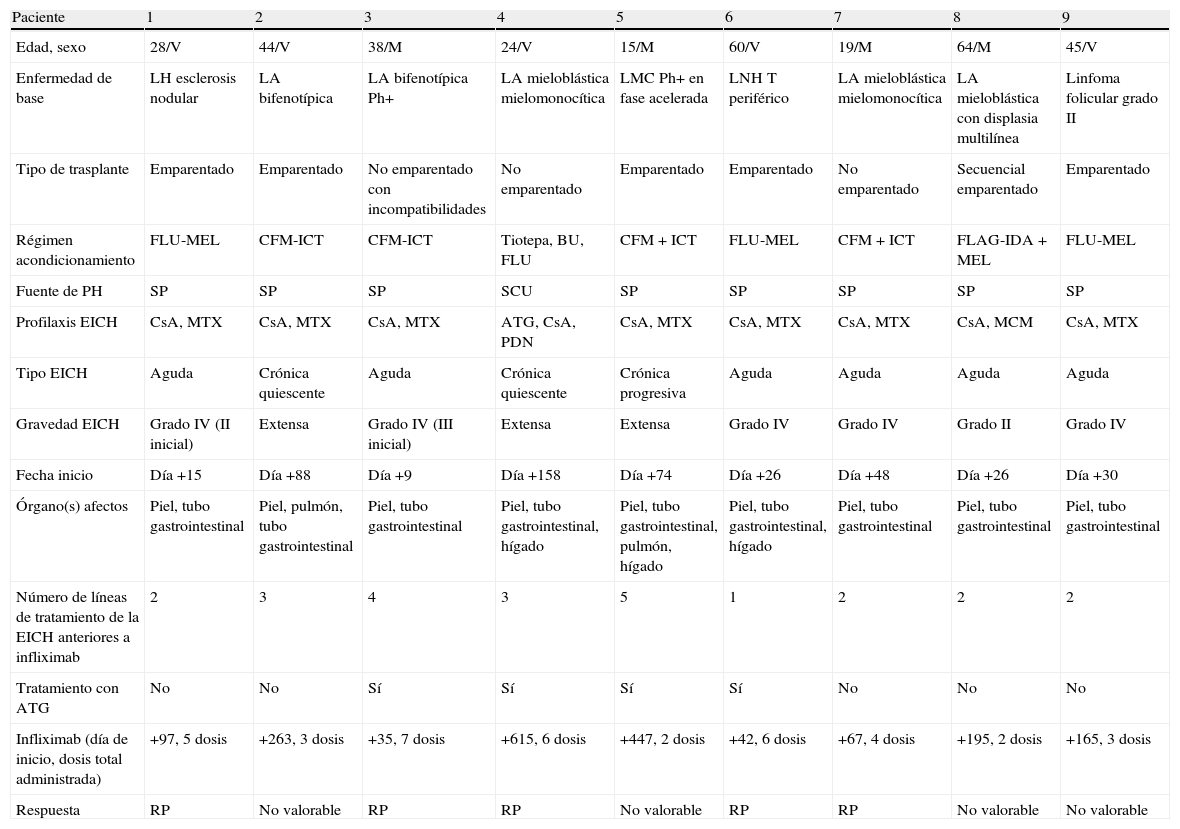La enfermedad del injerto contra el huésped (EICH) aguda grave y la crónica extensa resistentes a glucocorticoides tienen mal pronóstico. El infliximab ha demostrado eficacia en algunos pacientes con EICH. Se evaluó la eficacia y la toxicidad del infliximab en pacientes con EICH en un centro.
Pacientes y métodoAnálisis retrospectivo de la evolución de 9 pacientes con EICH aguda o crónica resistente a glucocorticoides tratados con infliximab.
ResultadosSeis pacientes con EICH aguda y 3 con EICH crónica recibieron infliximab semanal como tratamiento de rescate. La fuente de progenitores fue la sangre periférica en 8 y la sangre de cordón umbilical en 1 paciente. Seis recibieron un trasplante de progenitores hematopoyéticos (TPH) alogénico emparentado y 3 un TPH alogénico no emparentado. El número de dosis de infliximab administradas osciló entre 2 y 7. Cinco pacientes alcanzaron una respuesta parcial y el resto no fueron evaluables. Todos presentaron complicaciones infecciosas.
ConclusionesEl infliximab proporciona una respuesta transitoria en el tratamiento de la EICH resistente a glucocorticoides, pero se asocia con una alta tasa de infecciones. La administración precoz de infliximab podría reducir su frecuencia y gravedad.
Severe acute graft versus host disease (GVHD) and extensive chronic GVHD not responding to steroids have poor prognosis. Infliximab has reported to be effective in some of these patients. The efficacy of infliximab for the treatment of patients with steroid-resistant GVHD was evaluated.
Patients and methodsRetrospective analysis to evaluate the activity and toxicity of infliximab in 9 patients with acute or chronic steroid resistant GVHD.
ResultsSix patients had acute GVHD and 3 chronic GVHD. The source of progenitors was peripheral blood in all patients except one. Six received matched-related SCT and 3 unrelated SCT. Patients received between 2 and 7 doses of infliximab, and 5 achieved a partial response. All patients presented infections: 4 developed Pseudomonas aeruginosa septicemia and 5 probable or confirmed infection by Aspergillus fumigatus.
ConclusionsInfliximab provides transient response in steroid-resistant GVHD. However, it is associated with a high rate of infections. Earlier administration of infliximab should be explored to reduce the frequency of infections.







